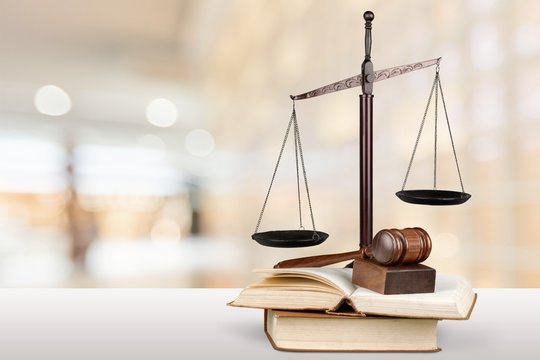Utah Legal Burdens: Key Standards of Proof Explained
Understanding the different legal burdens in Utah is essential for anyone involved in criminal or civil legal proceedings. From reasonable suspicion to beyond a reasonable doubt, these burdens determine the level of evidence required to justify a search, arrest, or conviction. In civil cases, burdens like preponderance of the evidence influence decisions about liability and damages.
This guide breaks down each legal burden, explaining how they apply in Utah courts and why having an experienced attorney matters.

Reasonable Suspicion (Criminal Law)
Legal Definition
Reasonable suspicion is the lowest evidentiary standard in U.S. law. It requires specific, articulable facts that suggest criminal activity. This standard allows officers to briefly detain and investigate individuals without violating constitutional protections.
- Example: Smelling marijuana or seeing a gun when the officer knows you are a felon.
- Origin: Terry v. Ohio (1968) established the “Terry Stop,” allowing officers to act on reasonable suspicion.
Reality Check
Reasonable suspicion is a very low threshold, often satisfied by one or two observable facts. It frequently morphs into probable cause, justifying a search or arrest.
Probable Cause (Criminal Law)
Legal Definition
Probable cause exists when an officer has facts that would convince a reasonable person that a crime has been committed. It is required for arrests, search warrants, and bench warrants.
- Example: Smelling alcohol on a driver’s breath after stopping them for a broken headlight.
Constitutional Basis
- U.S. Constitution, Fourth Amendment: Protects against unreasonable searches and seizures, requiring probable cause for warrants.
- Utah Constitution, Article I, Section 14: Mirrors federal protections.
Reality Check
Probable cause is slightly higher than reasonable suspicion but still a low bar. Many traffic stops or minor infractions serve as pretexts for more serious investigations.
Substantial Evidence (Administrative Law)
Legal Definition
Substantial evidence is a moderate burden requiring evidence adequate to convince a reasonable mind. It applies mainly in administrative law and judicial reviews.
- Example: Decisions by Utah administrative agencies, such as land use or bail determinations.
Reality Check
Substantial evidence is a relatively low standard, often favoring administrative agencies.
Preponderance of the Evidence (Civil Law)
Legal Definition
Preponderance of the evidence requires proof that a fact is more likely true than not (51% likelihood). This is the standard used in most civil cases, including personal injury and family law.
- Example: Proving liability in a car accident case.
Reality Check
While the standard is theoretically 51%, juries often require more persuasive evidence to rule in favor of a party, especially if the case involves emotional or complex issues.
Clear and Convincing Evidence
Legal Definition
This standard is higher than preponderance but lower than beyond a reasonable doubt. It requires evidence that leaves no substantial doubt about the truth of a claim.
- Example: Termination of parental rights or proving punitive damages in civil cases.
Reality Check
This “mushy” standard can be manipulated depending on the case, making it critical to have persuasive legal representation.
Beyond a Reasonable Doubt (Criminal Law)
Legal Definition
Beyond a reasonable doubt is the highest standard of proof, used exclusively in criminal trials. It requires evidence that leaves jurors firmly convinced of the defendant’s guilt.
- Example: Convictions in murder or theft cases.
Reality Check
While the standard is high, prosecutors often frame it as attainable by minimizing the concept of “doubt.” Conversely, defense attorneys emphasize its difficulty, likening it to climbing Mount Everest.
Why Understanding Utah Legal Burdens Matters
The legal burden applied to your case can significantly impact the outcome. Whether you’re facing a criminal charge or pursuing a civil claim, the right attorney can:
- Challenge the Evidence: Question whether reasonable suspicion or probable cause existed.
- Persuade the Jury: Effectively communicate the weight of evidence required under each standard.
- Advocate for Your Rights: Ensure constitutional protections are upheld.
Conclusion: Hire an Experienced Utah Legal Burdens Attorney
Understanding Utah legal burdens is crucial, but navigating them requires skill and experience. Attorney Jake Gunter has nearly 20 years of experience representing clients in criminal and civil cases, ensuring the proper standards of proof are applied to protect your rights.
Call or Text (801) 373-6345 for a Free Consultation
Jake Gunter is ready to handle your car accident, administrative law, or criminal defense case with expertise and dedication.
Take Control of Your Case
Don’t let misunderstandings about legal burdens affect your future. Contact Utah Legal Burdens Attorney Jake Gunter today to ensure the best possible outcome for your case.
Learn More About Utah Legal Burdens Attorney Jake Gunter 
For additional insights on Criminal Defense Law and to get to know Jake Gunter better, check out these helpful videos:
These resources will provide you with valuable information as you consider your legal options. For any questions or to schedule a free consultation, feel free to reach out to us directly.



